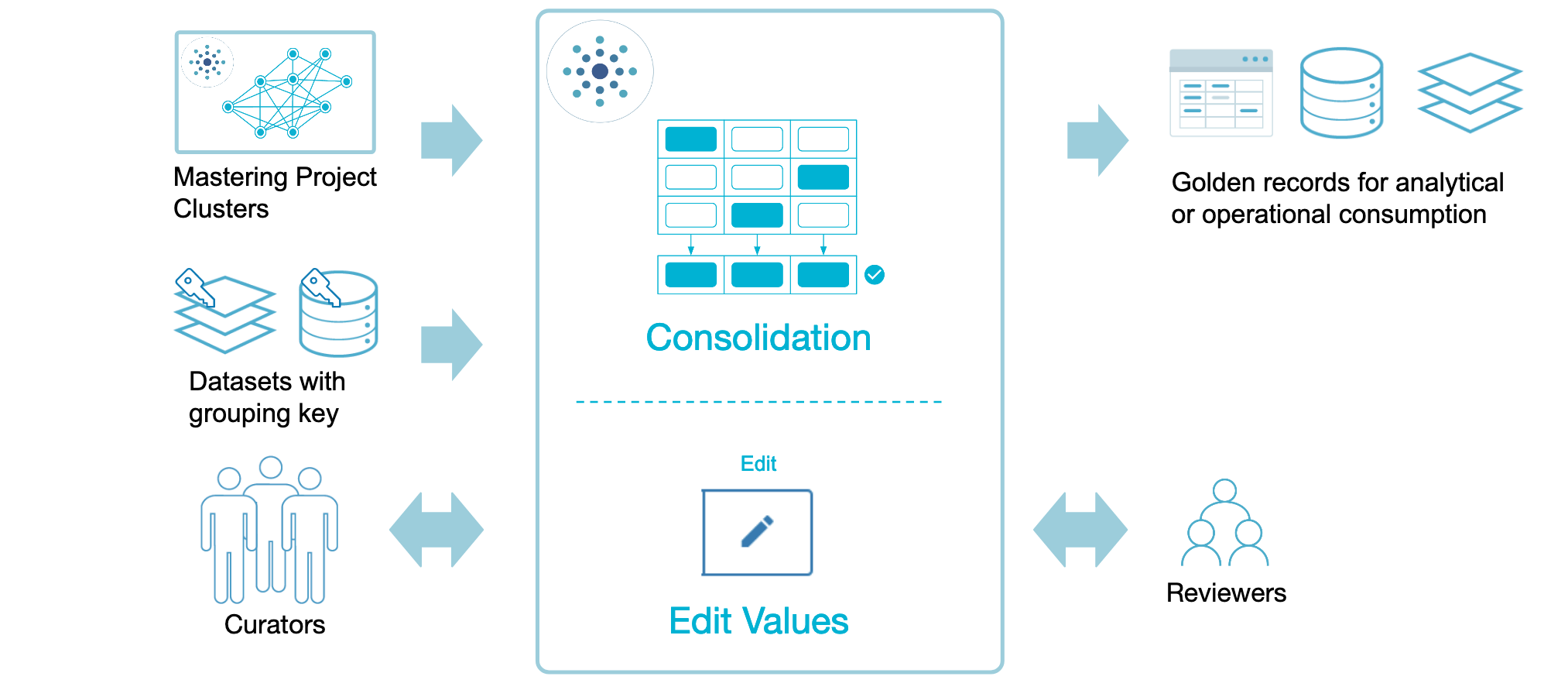Golden Records Projects
A golden records project allows you to consolidate all of the clustered or grouped records for an entity into a single "source of truth" record. This task is also known as survivorship.
Purpose and Overview
In golden records projects, curators consolidate data entities into unique "golden records." Curators identify the most appropriate data source for each attribute so that every golden record has the most accurate and up-to-date information, and define the "golden rules" for merging values from the clustered records into the golden record.
The end result is a record with trusted, consolidated data that defines a unique entity.
With a golden records project, you can create golden records from either of these sources:
- Clusters that result from a mastering project.
- A dataset that contains a grouping key.

The process of creating golden records.
Golden Records Workflow
The golden records workflow consists of the following stages.
- Create the project and either specify the mastering project that is the source of the clusters or upload a dataset and identify its grouping key. Team members with the admin role complete this stage.
- Create consolidation rules to aggregate values for each attribute. Rules can include dataset prioritization and conditions that specify which records the rule applies to. Tamr Core applies any conditions and then applies the specified aggregation method. Curators complete this stage. See Golden Record Consolidation Rules.
- Preview the effect of your rules for golden records and add new rules and iterate as needed. Curators complete this stage.
- Evaluate the results. Curators can edit golden values with a value override if needed. Curators complete this stage.
- Publish the mastered, consolidated dataset for downstream consumption. See Publishing Golden Records. Curators complete this stage.
Tip: Team members with the reviewer role can view results in a golden records project. However, these projects do not provide an interface for comments or feedback from reviewers.
For more information, see User Roles and Tamr Core Documentation.
Updated over 2 years ago